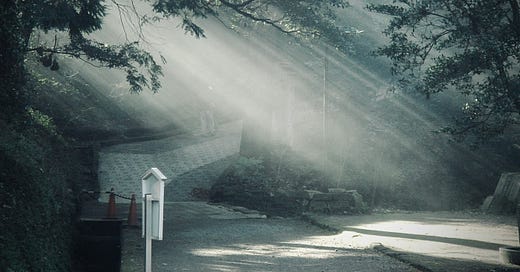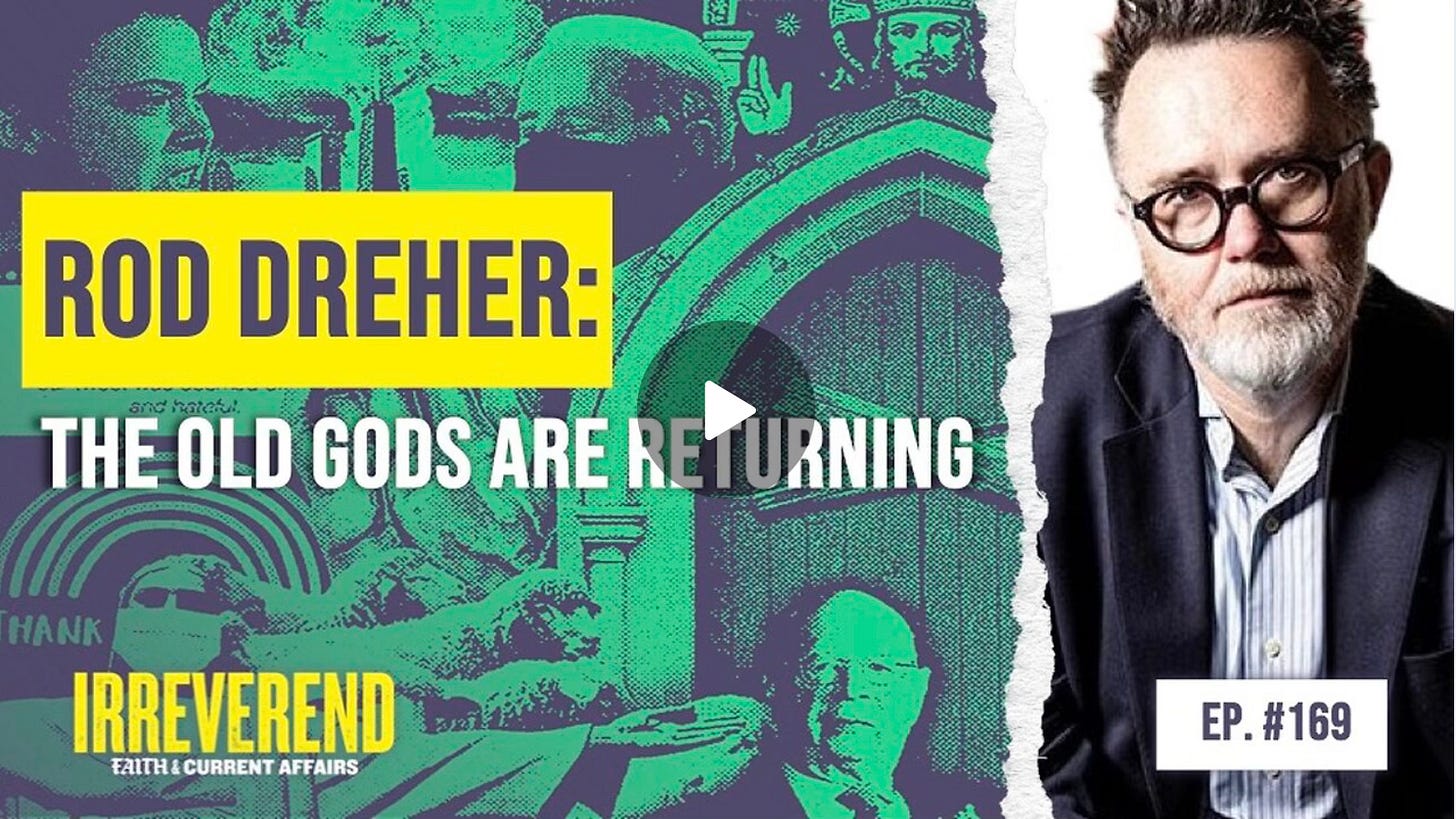From the Archives: Understanding the Attraction of the Occult
Friends and readers, I am on holiday this week, so I am scheduling for you a post from September 2023. This is one of the most popular posts ever published on this blog, so I think it probably worth revisiting. Its theme is something I’ve spoken and written about many times, which is the “flatness” of Modernity and the need it creates for transcendent uplift. In the absence of traditional religion, people (and often young people) are turning to alternative forms of spirituality and mind-bending hallucinogens to find it. One of these forms is the occult.
Please enjoy and don’t forget to subscribe!
The Occult as a “Subtler Language”
I have been reading Richard Gallagher’s book Demonic Foes on my rest days, so I am getting through it quite slowly. But I have to say that, if I wanted to disabuse somebody of the notion that materialism is true and that there is no spiritual world, then I would given him this book. Its clinical and forensic analysis of the ubiquitous phenomenon (both historically and globally) of demonic possession should leave one in no doubt as to its reality.
There is a really interesting section on the modern, western return to paganism and occult practices. This is something we’ve covered a bit on our podcast.
Modern regression to such beliefs often seem to arise primarily out of personal rebellion against monotheistic religions, along with some of their moral codes and demanding creedal systems…
What makes all these neopagan topics so interesting to the public today is that many people now question the traditional religious explanations for such a phenomena, which they believed to be too doctrinal and rigid; but they cannot dismiss such phenomena as nonexistent, because they have simply heard too many believable stories.
Richard Gallagher, Demonic Foes: My Twenty-Five Years as a Psychiatrist Investigating Possessions, Diabolic Attacks, and the Paranormal, pp. 175,178
This put me in mind of Charles Taylor’s notion of “subtler languages” which are ways that modern people attempt to access the transcendent through non-traditional means. That is, they reject orthodox religious practices and “organised religion” and instead seek religious or quasi-religious experiences in their own ways. Taylor talks about things like the arts and culture. We might even include following a football team and going to matches. But here is almost a much more vivid picture of a subtler language. The language is, in this case, actually explicitly touching on the supernatural realm but rejecting the (for want of a better word) standard approach to it…with the awful consequences that opening oneself up to demonic entities entails. And there are countless examples of that in this book.
I actually felt a real sense of spiritual encouragement reading this book. It has elucidated for me the nature of the demonic realm like nothing else and has further convinced me in the depths of my soul that all of this is true.
It put me in mind of this quotation from the spiritual writer Anthony de Mello. I read Demonic Foes and I think to myself, “It really is time to wake up.”
Spirituality means waking up. Most people, even though they don’t know it, are asleep. They’re born asleep, they live asleep, they marry in their sleep, they breed children in their sleep, they die in their sleep without ever waking up. They never understand the loveliness and beauty of this thing that we call human existence.
Anthony de Mello, Awareness, p.5
I think it’s possible that Anthony de Mello meant something a little different by “waking up” to me but in my view it means waking up to the reality of the spiritual world, both the light and the darkness. I’m pleased to say that I’ve come across lots of people over the last two or three years who are having just that experience. And, of course, even if we do wake up, we have to continue the process and make sure we don’t grow drowsy again.
Thanks for reading. For more on this topic, please listen to my interview with Rod Dreher from about a year ago. I discussed with him the weird and disturbing stories he’d uncovered about contemporary interest in the occult whilst researching his book Living in Wonder.



